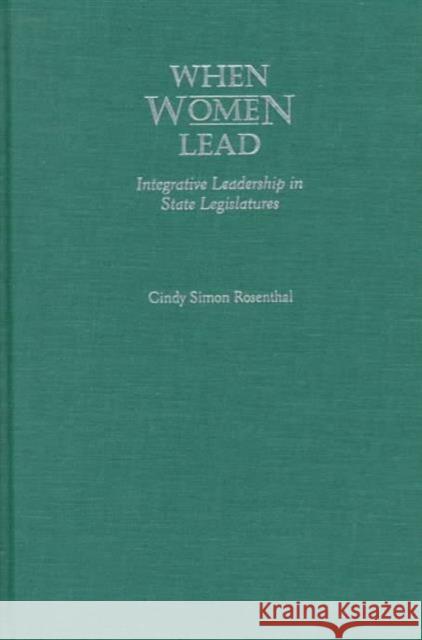When Women Lead: Integrative Leadership in State Legislatures » książka
When Women Lead: Integrative Leadership in State Legislatures
ISBN-13: 9780195115406 / Angielski / Twarda / 1998 / 256 str.
When Women Lead: Integrative Leadership in State Legislatures
ISBN-13: 9780195115406 / Angielski / Twarda / 1998 / 256 str.
(netto: 152,49 VAT: 5%)
Najniższa cena z 30 dni: 154,19
ok. 16-18 dni roboczych.
Darmowa dostawa!
Until recently, the study of legislative leadership has been the study of men. Scholars have taught students that legislative leadership is transactional, a kind of competitive bargaining procedure to broker particular interests. When Women Lead: Integrative Leadership in State Legislatures brings to light the important contributions that women as legislative leaders make to the institutions in which they operate. Cindy Simon Rosenthal shows us how (and where) women are "integrating" the ranks of the legislative hierarchy, a forum in which they have been all but absent. She also argues that women are "doing leadership" in an innovative, inclusive style that subtly redefines both the appearance and meaning of political leadership.
Contradicting the assumption that legislative leadership is inherently transactional, Rosenthal posits an integrative style emphasizing collaboration, shared problem-solving, and consensus. Further, she argues that women committee chairs come to their roles from different life experiences, and so employ motivations, tactics, and visions of leadership that differ in important ways from their male counterparts. Her findings suggest that women tend to see political leadership as something more than the act of satisfying particular interests. This study of women who chair state legislative committees examines one of America's largest cohorts of women in institutional leadership roles, thus making an important contribution to our understanding of gender, organizational leadership, and state legislatures. Rosenthal ably demonstrates that legislatures are not gender-neutral and that legislative leadership must be understood within a gendered context. Numbers and power therefore constitute critical variables throughout this study. While stereotyping has not disappeared in some states, women across the country--as illustrated in When Women Lead--are effectively redefining the framework and the assumptions central to political leadership in other locales.










